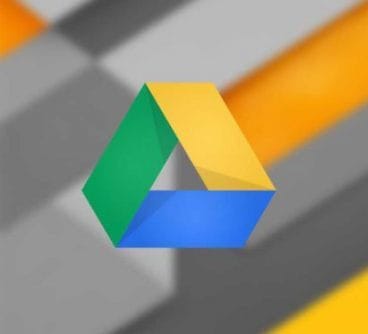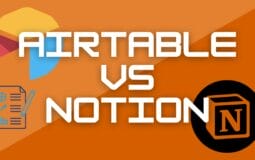Whether you’re a data professional who wants to get more out of your Excel spreadsheets, or an entrepreneur looking for a better way to organize your business’ data and get better insights into your data, there are plenty of options today.
Two of the most popular alternatives for organizing data and managing projects are Airtable and Notion.
Both tools are designed for people who want more than just a simple spreadsheet but still appreciate Excel’s simplicity and flexibility.
But how do these two tools stack up against each other?
Which one is better?
This post will look at both platforms from all angles: ease of use, pricing plans, exporting capabilities, and more!
How does Airtable Works?
Airtable is a software platform that lets you create tables and manage them in a relational database. Airtable is also known as a CRM system, which means it can be used to keep track of your contacts, projects, and clients. It has project management capabilities too.
You can use Airtable to create different types of files: lists, checklists, cards (like Trello), maps (like Google Maps), or even forms for collecting information from users. For example, you could use it to build a spreadsheet listing all the people who have attended one of your events—and then send each attendee an email with details about next year’s event just by clicking one button in Airtable!
Airtable Features

Airtable is a database management tool that can organize and store data efficiently.
Airtable allows you to create a database, add new fields, and select the type you want (number, text, date, etc.). You can also assign each field a different relationship with other tables.
Then you can perform calculations on those fields based on their relationship with other tables.
This is very useful when working with large amounts of data. It allows you to easily filter information from your database using the filter drop-down menu, which lists all connections between different tables in your project.
Moreover, there are some features only available for paid plans:
- Automated backups: This feature guarantees that no matter what happens during an outage or power cutout at your office or home office location where Airtable is hosted, no data will ever get lost due to accidental deletion or accidental editing of some records by mistake without being backed up yet again firstly within 24 hours after uploading the changes into production server so that no one gets hurt financially since our company has already spent several hundred thousand dollars before launching this product worldwide;
- Support for mobile devices: This feature enabled all users who have downloaded our mobile application onto their smartphones can access all important files stored inside their projects from anywhere they go without worrying about internet connectivity issues affecting them negatively due to lack thereof!
Notion Features
Notion is a great tool for organizing content. It’s not just a database but also a collaboration and content-creation tool.
It’s great for sharing with others and generating ideas to be used as part of your team workflow or project management process.
You can use Notion to organize information by creating topics with notes, lists, and pages within each topic; you can also add attachments like images or PDFs from external sources. The interface is super intuitive, so even if you’re new to using apps like this one, it won’t take long before you’re on top of your game!
Airtable vs Notion: Pricing
Airtable is free for up to 10 users, which is a pretty good deal. Notion, on the other hand, starts at $12 per month for one user and increases by $4 per user after that.
The good news is that Notion offers a 14-day free trial, so you’ll be able to get your feet wet before committing to anything long-term.
Airtable vs Notion: Ease of Use
Airtable and Notion are both intuitive platforms that anyone can use. However, there are some differences in how the two software tools handle basic tasks such as creating new content or adding a new file.
Airtable is designed to take the guesswork out of organizing data by making it easy to create templates and arrange your data into different sections or tabs.
All you need to do is drag-and-drop items into place—for example, if you want to create a new spreadsheet with specific fields like title, description, date modified, etc., all you have to do is drop them into the right order on Airtable’s board.
In contrast, Notion takes advantage of its unique “smart tables” feature that automatically collects information from other sources (i.e., Google Sheets).
This makes it possible for users who know what they’re doing but don’t necessarily want an overly complicated system; however, it also means there will be less trial-and-error involved when learning how all this works for yourself!
With Notion’s interface being more streamlined than Airtable’s (which often has too much going on at once), this could make things easier, especially if you’re getting started after many years away from organizing things digitally 🙂
Airtable vs Notion: Exporting

The import and export capabilities of Airtable are far superior to those of Notion.
- Airtable has an API that allows you to do more with your data than import or export it, whether through a programmatic download or via drag-and-drop in the chromium web browser.
- Notion has a CLI (command line interface) for exporting files and directories but not for importing them. You can use the Python library PyNotionLibrary, which requires downloading the Python script file and running it from the command line.
- Airtable has a File Uploader feature that will allow you to upload files directly into your table from an external source like Dropbox or Google Drive, making it easier to organize content stored elsewhere on cloud storage platforms such as these two services listed earlier in this article.
Why Should You Use Airtable?
Airtable has a lot going for it. It’s easy to use, great for collaboration, and good at handling various tasks. In particular, Airtable is a great tool to use if you want to get started with data organization because there are many different ways to organize your data.
With Airtable’s straightforward interface and the ability to do anything with your data tables, it’s easy for anyone—even non-technical people—to jump in and start creating powerful databases.
Why Should You Not Use Notion?
Let’s look at some of the reasons why Notion is a better option for organizing data.
- Notion is better for collaboration. Multiple people can use it to organize thoughts, plans, and ideas in one place. Each user can have their profile, and each has its own space to keep all relevant information related to that person’s task. This allows different users working on the same project to know what others are doing without constantly communicating via email or chat applications like Slack or Telegram, etc. Also, you don’t have to worry about accidentally overwriting someone else’s work since each person has a section within Notion where they can store everything related to them (like documents they’ve created).
- Notion is cheaper than Airtable: both cost $9/month, but Airtable charges more per user than Notion does (which makes sense why more people are using Notion). Another advantage here is that you can use either service for free if all your needs are met by their free tier; however, when it comes down to which product offers better value overall (and perhaps even greater support), I would argue there’s no contest here – because although I love Airtable & use it daily at work (as well as personally) our company only uses one paid plan.
Conclusion
Now that you know the major Airtable vs Notion differences, it’s time to decide which suits your needs.
Despite the detailed explanation, If you need help deciding which is best suited for your business or team, feel free to contact us in the comments below.



